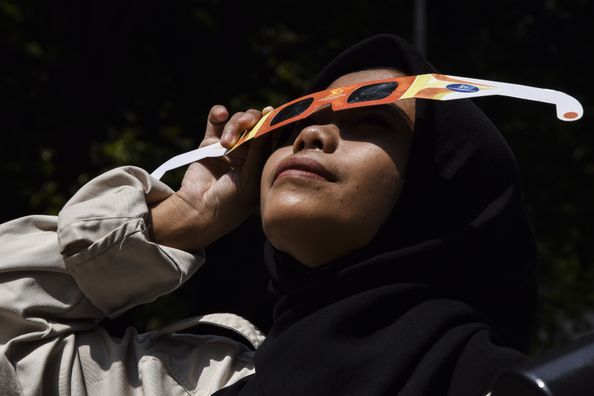Get ready for a rare sight! A total solar eclipse will grace the U.S. skies on April 8, the first since 2017. Quincy Medical Group (QMG) Ophthalmologist Dr. Eric Sieck reminds everyone that while this is a sight to behold, prioritizing eye safety is crucial for a truly unforgettable experience.
Safety First
Dr. Sieck emphasizes the importance of proper eye protection during the eclipse, highlighting a startling statistic — 90% of solar retinopathy cases come from eclipse viewing.
“Looking directly at the sun, even for a brief moment, can cause permanent eye damage called solar retinopathy,” he warned. “This damage can lead to scarring, vision loss, and serious injury.”
In some areas of the country, people will experience “totality” when the sun is completely blocked. In Quincy and the immediate surrounding areas, Dr. Sieck said there will be no safe time to view the eclipse without proper eyewear.
While some areas will experience ‘totality’ (complete sun blockage), Quincy and surrounding areas will have a near-total eclipse (almost 93% blockage). This can be deceiving, as the remaining 7% of the sun can still cause serious eye damage.
“The region will get to a point when the eclipse looks like a diamond ring, where almost the entire sun will be covered, but there will be one little hot spot and people will be tempted to look at the diamond ring, but that’s when the worst potential injury could happen,” he explained.
Protecting Children: A Top Priority
Children are especially vulnerable to eye damage from the sun, so adults need to be conscientious in protecting children in their care.
“Their eye tissue is younger, the structures in their eyes are much clearer, there’s more transmission of the energy to back of the eye. People need to take care of their children first with appropriate eyewear before they put their own eyewear on,” he explained.
Choosing the Right Eyewear
When watching a partial or annular solar eclipse directly with your eyes, you must look through safe solar viewing glasses (“eclipse glasses”) at all times. Eclipse glasses are NOT regular sunglasses; regular sunglasses, no matter how dark, are not safe for viewing the sun.
Here’s what to look for:
- ISO Certification: Look for glasses with a designated ISO 12312 – 2 international standard, ensuring they meet safety requirements.
- Manufacturer Information: The manufacturer’s name and address should be printed on the product.
- Expiry and Condition: Don’t use glasses older than three years or with scratched/wrinkled lenses.
- No Substitutes: Homemade filters, regular sunglasses (even dark ones), and viewing through optical devices are not safe for direct sun observation.
Health Topics:







